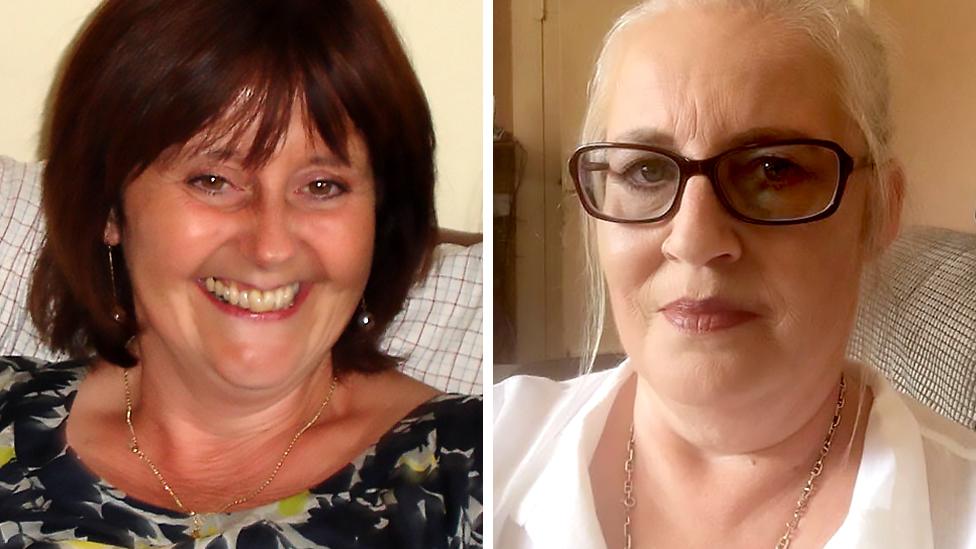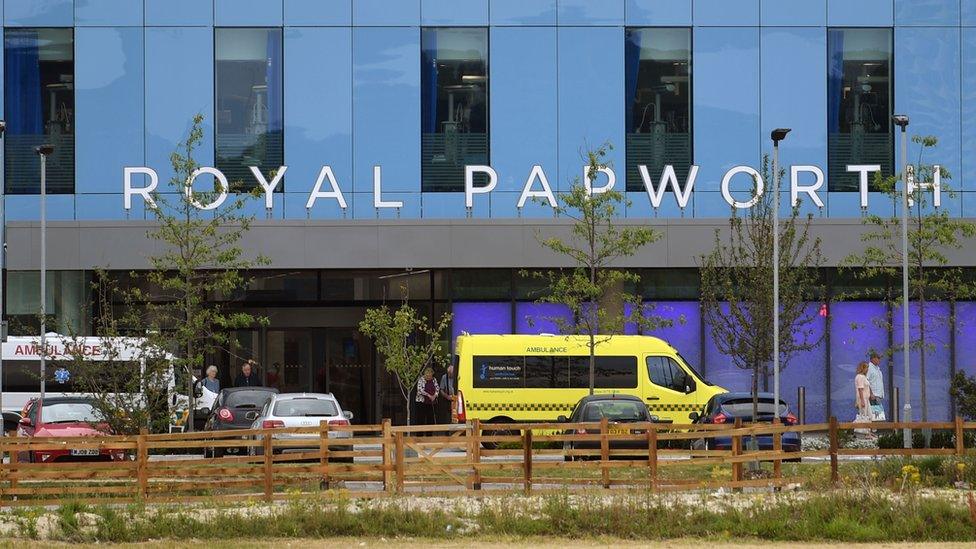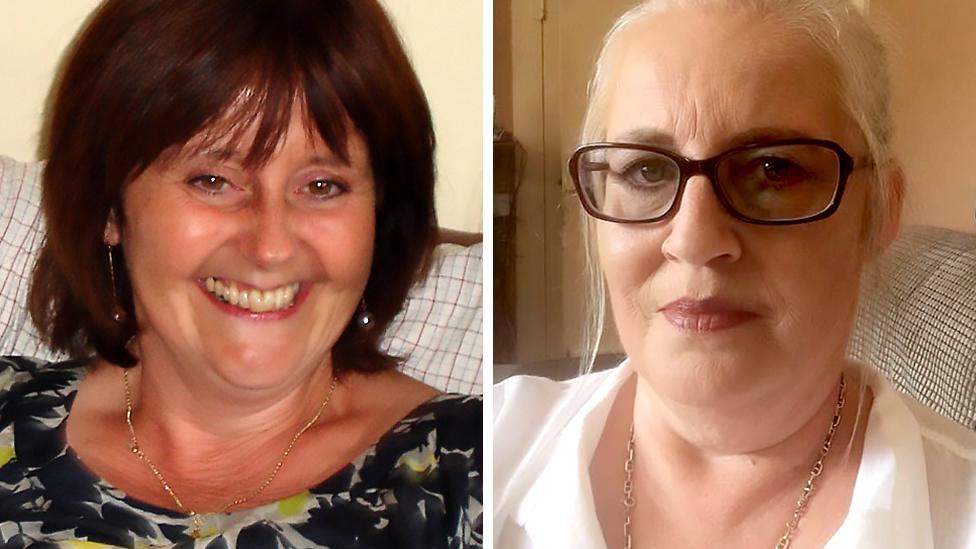Papworth Hospital: Coroner warning over contaminated water deaths
- Published

Anne Martinez and Karen Starling died the year after undergoing double lung transplants
A coroner has issued a warning over a lack of guidance around a bacteria that contaminated a new hospital's water supply and led to two women dying.
Anne Martinez, 65, and Karen Starling, 54, died a year after undergoing double lung transplants at the Royal Papworth Hospital in Cambridge in 2019.
Both were exposed to mycobacterium abscessus, likely to have come from the site's water supply, an inquest heard.
The coroner said there were issues that gave "rise to a risk of future deaths".
The hospital trust's chief executive, Eilish Midlane, said it had followed national guidance in place at the time, and when the issue was identified in 2019 it "took immediate action to ensure patient safety".
Keith Morton KC, assistant coroner for Cambridgeshire and Peterborough, told the inquest the bacteria was "of particular concern to lung transplant patients".
It heard 21 people had contracted mycobacterium abscessus in the months after the hospital opened in 2019.
Mrs Starling, from Ipswich, suffered with chronic obstructive pulmonary disease and was recommended for a lung transplant in 2014, undergoing the procedure in 2019.
However, by the September she began to develop shortness of breath. In January 2020 she was readmitted to Royal Papworth, but her health deteriorated and she died a month later.

Anne Martinez died in December 2020, an inquest heard
Mrs Martinez, of Borehamwood in Hertfordshire, received a lung transplant at the hospital in July 2019 and shortly afterwards contracted mycobacterium abscessus.
Her family told the inquest "with failing health, she was forced to fight constantly to get treatment" and she died in December 2020.
Giving his findings at Peterborough Town Hall, Mr Morton said: "Neither Mrs Starling nor Mrs Martinez would have died at the time or in the circumstances they did but for their exposure to mycobacterium abscessus in the hospital.
"It is especially tragic that they should have done so having successfully undergone major surgery intended to prolong and improve the quality of their lives."
He said that "at the time the hospital was designed, built and opened, mycobacterium abscessus in water was not considered a significant risk".
In his narrative conclusion, Mr Morton said: "It is not possible to conclude how or precisely when the hospital water became contaminated with mycobacterium abscessus, but had it been identified before [both women] acquired it, steps would likely have been taken to reduce the risk to them of infection."
Mr Morton said in the months following completion of the hospital, but prior to occupation, the water system was underused.
"The evidence is that the trust faced difficulties resourcing flushing, with the probable consequence that after the hospital opened and before the outbreak was known, it either was not done or was not done efficiently," he said.

The new Royal Papworth Hospital opened in Cambridge in 2019 after moving from nearby Papworth Everard
Mr Morton said among his concerns was "a lack of understanding as to how mycobacterium abscessus entered the hospital water system" and "an absence of guidance to hospitals... relating to the identification and control of mycobacterium abscessus".
"This gives rise to a risk of future deaths. That is especially so in the context of new hospitals and immunosuppressed patients."
He said he would direct a prevention of future deaths report to the health secretary.
In a statement released after the inquest, Mrs Martinez's sons said: "We'll never know for certain, but it's difficult not to think whether things could have been different if she had received the treatment earlier.
"We will never get over losing mum and particularly in the way we did. All we can hope for now is that others don't have to go through the hurt and pain we continue to live with."
Mrs Starling's husband Derek said: "Losing Karen in the way we did is something my family will never get over. She's left a huge void in all our lives.
"While the last three years has been awful for us, we take some small comfort from at least having answers. We now just hope that lessons can be learned to protect others."
Ms Midlane, from Royal Papworth Hospital NHS Foundation Trust, said: "The deaths of Mrs Martinez and Mrs Starling have been devastating for their families. We send our heartfelt condolences to them and are terribly sorry for their loss.
"While the coroner acknowledged that we had followed national guidance in place at the time for the testing and management of water safety, we are grateful for the opportunity to review the findings in full so that any further learning is embedded and shared.
"We launched an investigation as soon as this issue was identified in 2019 and took immediate action to ensure patient safety, including installing specialist filters on taps and showers and enhanced treatment of the water supply, which regular testing shows has remained effective."
The inquest heard the bacteria remains in the hospital's water supply.
The hospital's website states, external "these measures have been effective in reducing the counts of mycobacteria" and lung transplant patients will go through an "enhanced consent process... so that you're fully aware of the issue, any potential risks, and how we are managing the situation".

Find BBC News: East of England on Facebook, external, Instagram, external and Twitter, external. If you have a story suggestion email eastofenglandnews@bbc.co.uk, external
- Published3 November 2022
